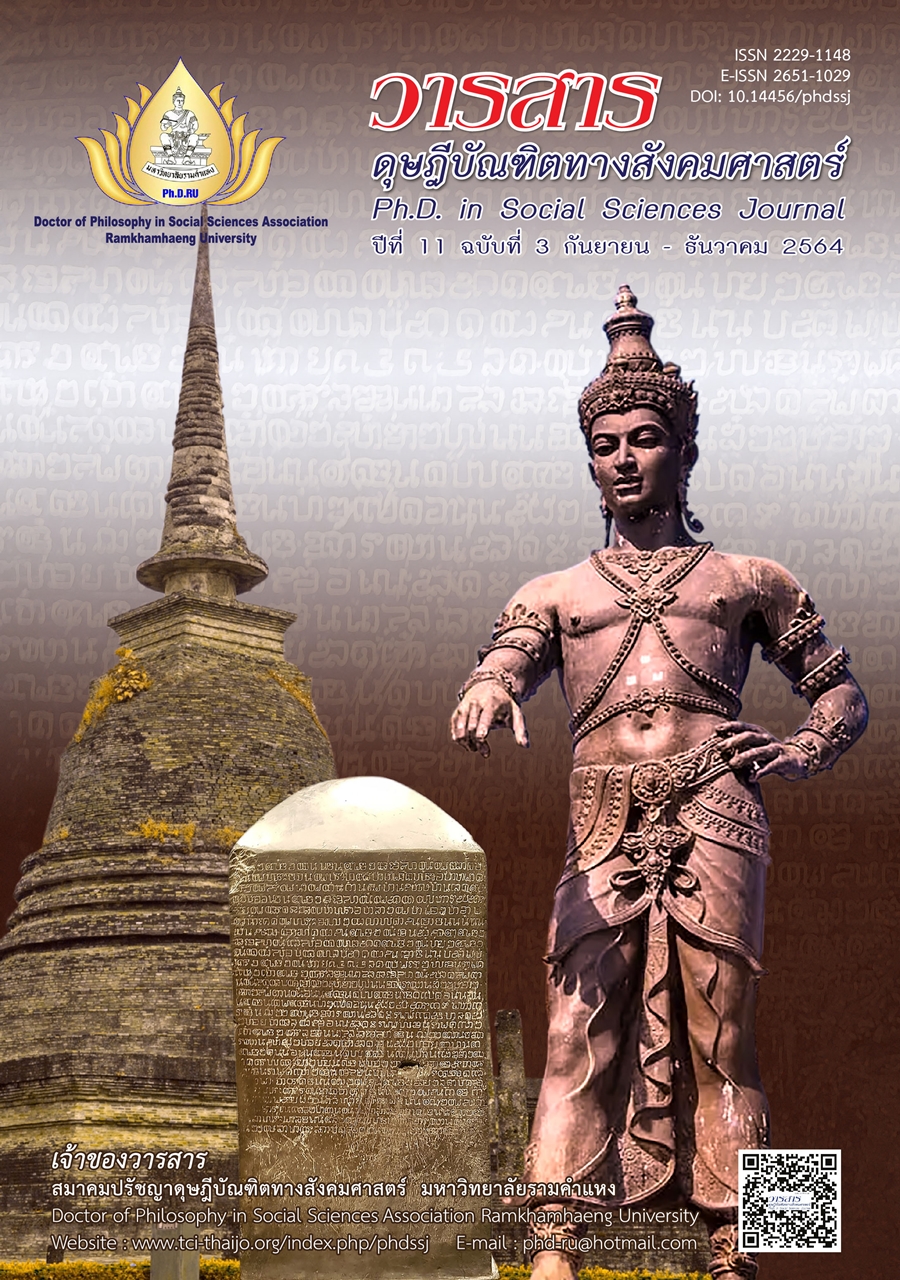The Effects of Financial Statement Quality and Its Antecedents on the Perceived Organizational Performance of the Public Sector in Thailand
Main Article Content
Abstract
The objective of researcher article investigates the effects of the core competency, the professional competency, and the functional competency of the accountants in the public sector on the qualitative characteristics of financial statements, perceived organizational performance of public sector and the effects of the qualitative characteristics of financial statements on perceived organizational performance of public sector. The qualitative data were obtained from in-depth interviews with seven experts. The quantitative data were obtained by using a questionnaire with 441 personnel. Quantitative data were processed using a computer program and the Structural Equation Model (SEM).
Findings showed that core competency, professional competency, and functional competency positively affected the qualitative characteristics of financial statements. Professional competency, functional competency and the qualitative characteristics of financial statements positively affected perceived organizational performance. Core competency negatively affected perceived organizational performance. An important finding was that the data in qualitative financial statements must be from the core competency, the professional competency, and the functional competency of the accountants. The government must provide support for the development of the ethics, skills, and knowledge of the accountants in a continuous manner. This will foster reliability in efficiency and effectiveness in the operation of the public sector.
Article Details
Academic articles, research articles, and book reviews in the Ph.D. in Social Sciences Journal are author’s opinions, and not the publisher’s, and is not the responsibility of the Ph.D. in Social Sciences Journal Philosophy Association, Ramkhamhaeng University. (In the case that research is done on human, the researcher has to be trained in Ethics for Doing Research on Human Training and has to produce the evidence of the training).
References
Anvari, P. F., Soltami, I., & Rafiee, M. (2016). Providing the applicable model of performance management with competencies oriented. Social and Behavioral Sciences, 230, 190-197.
Bangmo, S. (2015). Business ethics (7th ed). Phatanawit Printing. [In Thai]
Bayot, D. G. (2014). A competency model for catering and event professionals using a modified Delphi technique. Dissertation Abstracts International, 76(8), 192-A.
Best, J. W. (1981). Research in education (4th ed). Prentice Hall.
Boonlert, N. (2017). Organization core competency development. In Strategic management and competency based management (8th ed.). Sukhothai Thammathirat Open University Press. [In Thai]
Chanthaburiphaisan, P. (2006). Search and analysis for in-depth competency practice (2nd ed.). HR Center. [In Thai]
Delaney, J. T., & Huselid, M. A. (1996). The Impact of human resource management practices on perceptions of organizational performance. Academy of Management Journal, 39(4), 949-969.
Federation of Accounting Professions Under The Royal Patronage of His Majesty The King. (2015). Conceptual framework for financial reporting (B. E. 2558). Retrieved from https://www.tfac.or.th/upload/9414/UW0ynKPwuW.pdf [In Thai]
Gray, S. J. (1988). Towards a theory of cultural influence on the development of accounting system internationally. Abacus, 24(1), 1-15.
Hair, J. F., Black, W. C., Babin, B. J., & Anderson, R. E. (2010). Multivariate data analysis (7th ed.). Prentice Hall.
Iskandar, D., & Setiyawati, H. (2015). The effect of internal accountants’ competence on the quality of financial reporting and the impact on the financial accountability. International Journal of Managerial Studies and Research, 3(5), 55-64.
Kaplan, R. S., & Norton, D. P. (1998). The balanced scorecard: Translation strategy into action. President and Fellows of Harvard College.
Kuhirun, R. (2015). The administration efficiency with regard to auditing of the office of the state audit according to the royal initiatives. Srinakharinwirot Research and Development Journal of Humanities and Social Sciences, 7(14), 64-76. [In Thai]
Lucia, A. D., & Lepsinger, R. (1998). The art and science of competency models: Pinpointing critical success factors. Jossey-Bass/Pfeiffer.
Office of the Civil Service Commission. (2003). Result Based Management (RBM). Author. [In Thai]
Perera, M. H. B. (1989). Accounting in developing countries: A case for localised uniformity. Accounting Review, 21(2), 141-158.
Perry-Smith, J. E., & Blum, T. C. (2000). Work-family human resource bundles and perceived organizational performance. Academy of Management Journal, 43(6), 1107-1117.
Phuwitthayaphan, A. (2005). Competency dictionary (2nd ed.). HR Center. [In Thai]
Sapcharoen, Y. (2012). The development of an achievement management model in the Educational Service Area Office. Doctoral Dissertation in Educational Administration. Burapha University. [In Thai]
Setiyawati, H. (2013). The effect of internal accountants’ competence, managers’ commitment to organizations and the implementation of the internal control system on the quality of financial reporting. International Journal of Business and Management Invention, 2(11), 19-27.
State Audit Office of the Kingdom of Thailand. (2019). Annual report. Retrieved from https://www.audit.go.th/th/report/audit [In Thai]
Tantiset, N. (2015). The factors affecting of quality of financial statement and decision making effectiveness of listed companies in the Stock Exchange of Thailand. Srinakharinwirot Business Journal, 6(2), 20-35. [In Thai]
Thailand Competitiveness. (2018). Operations to enhance the country’s competitiveness for the year 2017. Retrieved from http://thailandcompetitiveness.org [In Thai]
Theerachanachakul, K. (2014). Business ethics. Panayachon. [In Thai]
Thummanon, V. (2009). New dimensions of financial statements and analysis. Dharmniti Press. [In Thai]
Warongan, J. D. L., Pagalung, G., Uppun, P., & Habbe, A. H. (2014). The effects of effectiveness mediation of internal control system on competency of human resources and audit opinion in previous year toward quality of financial statement. Journal of Research in Business and Management, 2(11), 9-16.
Woolf, M. N. (2012). Competencies for financial aid officers: A competency model for professional development. Dissertation Abstracts International, 74(1), 134-A.
Yotingyong, K. (2007). Competency (2nd ed.). Mr. Copy. [In Thai]


